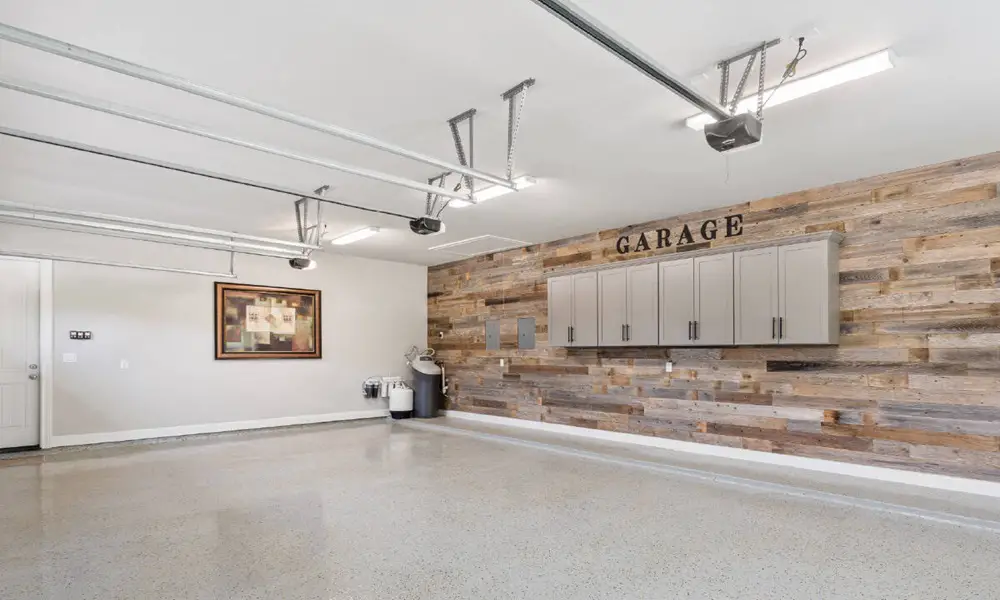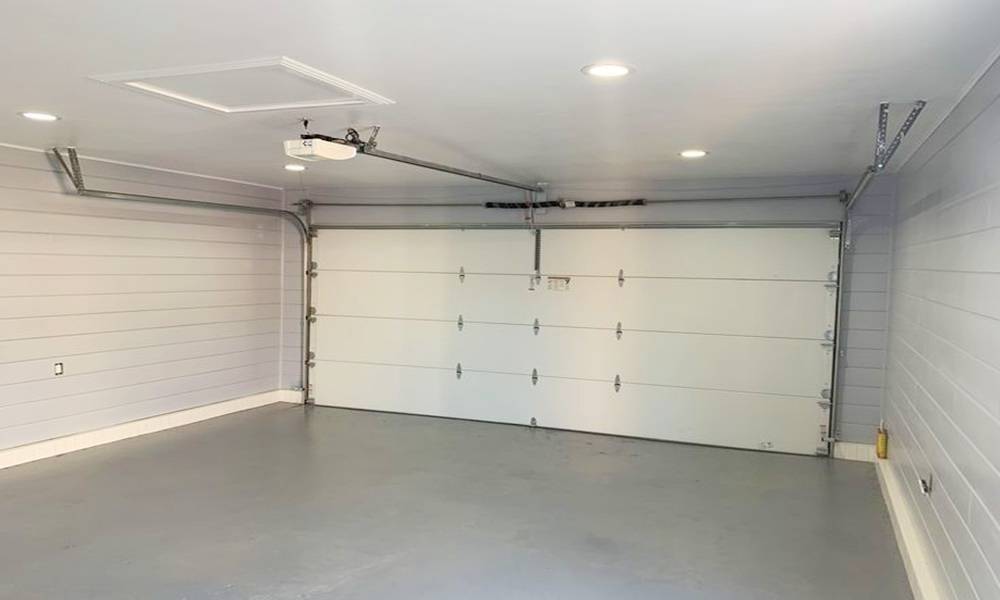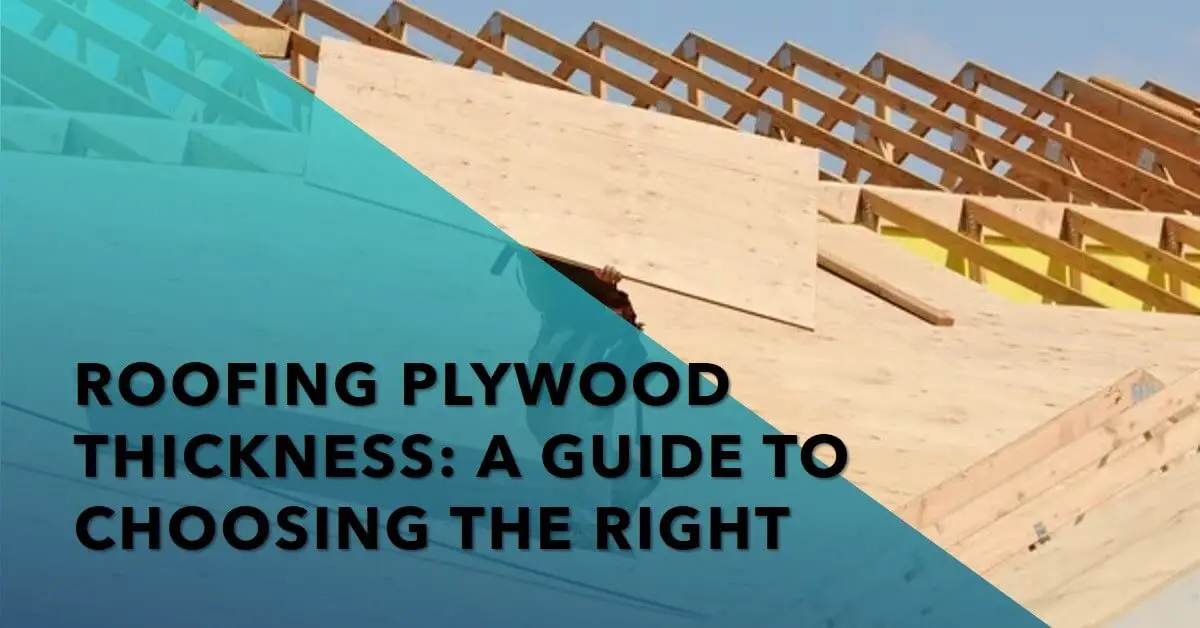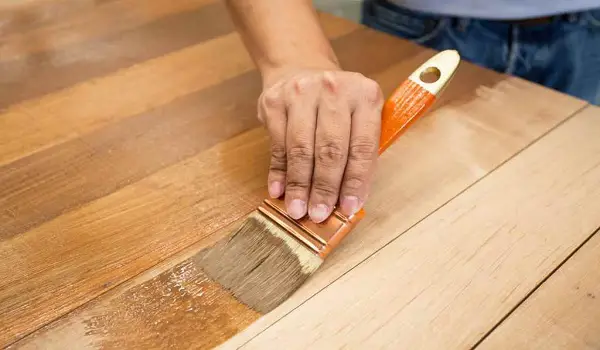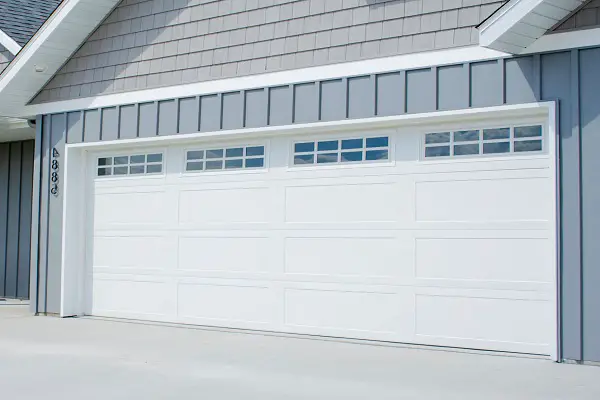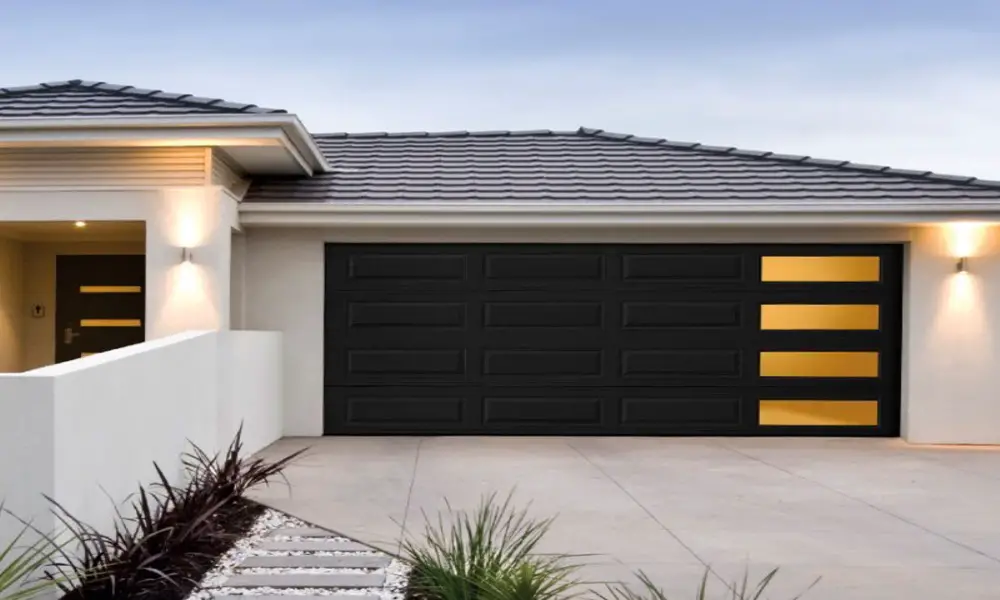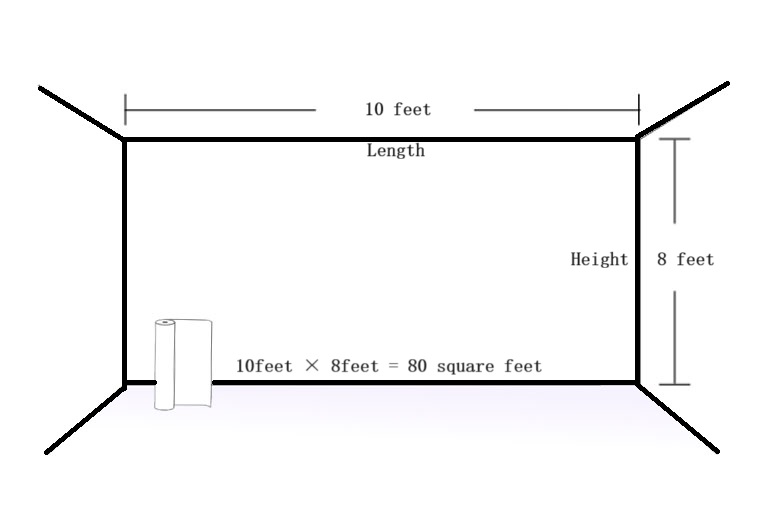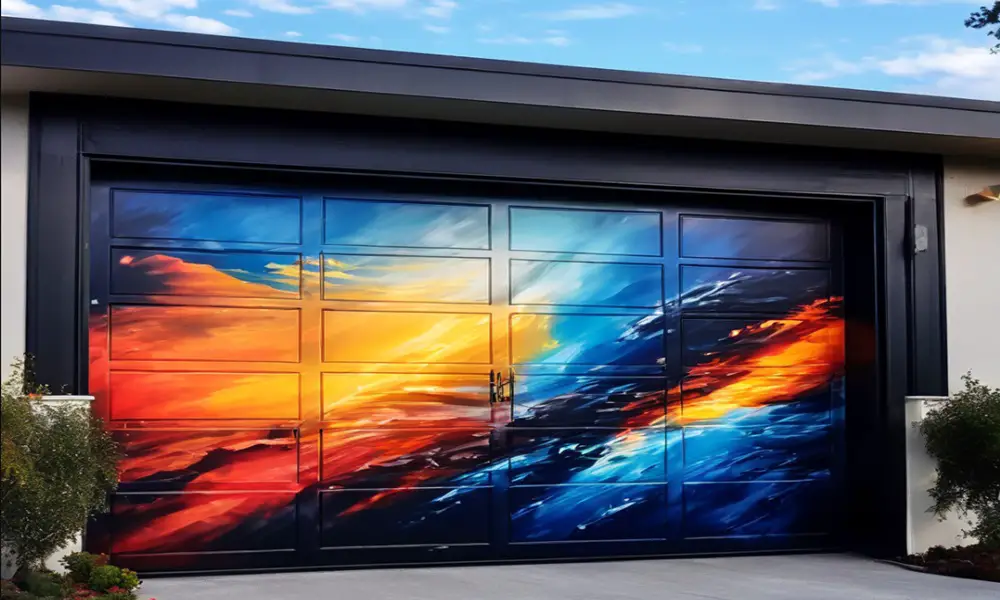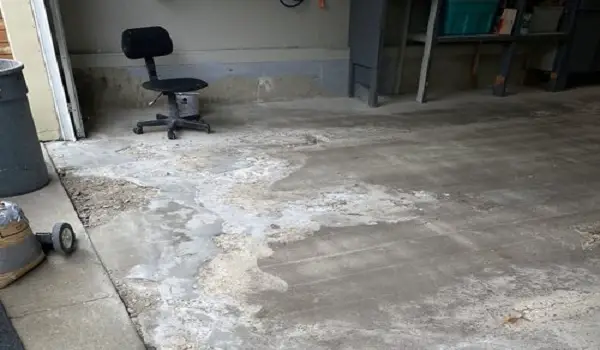What Type of Plywood is Best for Garage Walls?
If you’re planning to upgrade your garage walls, using plywood can be a practical and versatile choice. Plywood is known […]
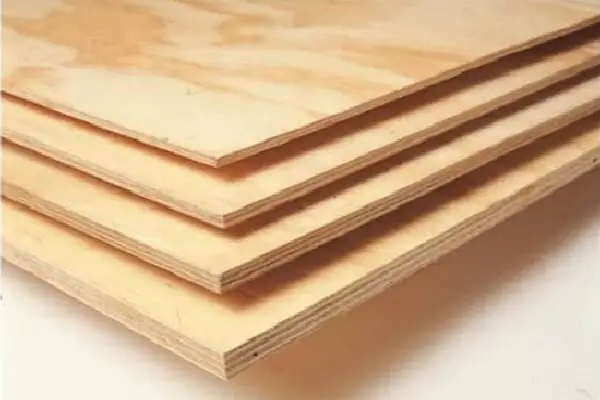
If you’re planning to upgrade your garage walls, using plywood can be a practical and versatile choice.
Plywood is known for its strength, durability, and affordability, making it a popular material for various construction and woodworking projects.
Not all plywood is suitable for every application. In this article, we will explore the different types of plywood available in the market and help you determine the best option for your garage walls.
You may also like:
Understanding Plywood
Plywood is an engineered wood product composed of thin layers of wood veneers glued together.
These veneers are stacked with their grain directions alternating, resulting in a strong and stable panel.
The quality and properties of plywood can vary depending on the type of wood used, adhesive quality, and manufacturing process.
Requirements for Garage Walls
Garage walls face unique requirements compared to the interior or exterior walls of a house.
They must withstand potential impacts, moisture, and temperature fluctuations. The plywood used for garage walls should be able to support shelves, hooks, and other storage systems.
With these considerations in mind, let’s explore the different types of plywood commonly used for garage walls.
Read Also:
Common Types of Plywood
1. CDX Plywood
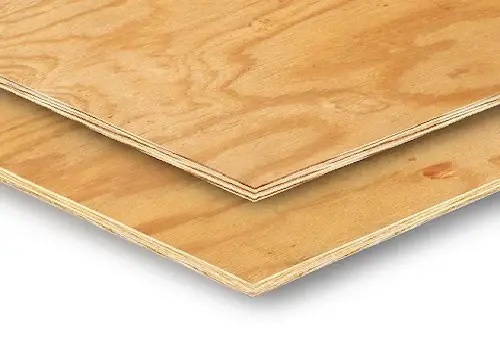
CDX plywood is one of the most widely available and commonly used types of plywood in construction. It is made from softwood veneers and has a rough surface.
CDX plywood offers good structural strength, making it suitable for various applications.
It has limited moisture resistance, which makes it less ideal for garage walls or other areas prone to high humidity.
Read Also:
2×4 and Plywood Garage Shelves
2. ACX Plywood
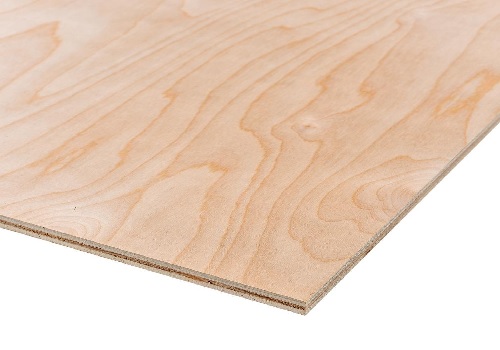
ACX plywood, also known as A-C exterior plywood, is an upgrade from CDX plywood. It features a smoother surface and a better appearance.
ACX plywood is often chosen for applications where aesthetics matter, such as furniture or cabinetry. It also provides improved moisture resistance, making it more suitable for outdoor projects or areas exposed to moisture.
3. T1-11 Plywood
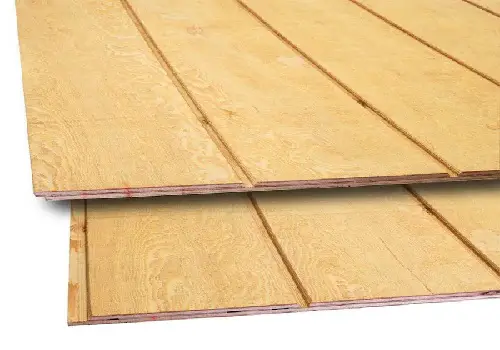
T1-11 plywood is primarily used as a siding material, but it can also be employed for garage walls with proper precautions.
It offers a rustic and textured look, resembling vertical planks with grooved patterns. T1-11 plywood can add visual interest to your garage walls, but it requires adequate sealing and protection against moisture to prevent damage.
4. Marine-Grade Plywood
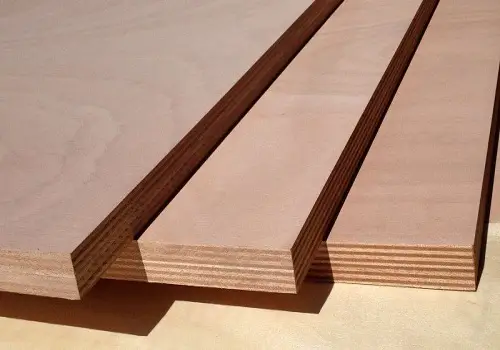
Marine-grade plywood is specifically designed to withstand water and moisture exposure. It is constructed using waterproof glue and high-quality veneers, making it highly resistant to rot and delamination.
Marine-grade plywood is an excellent choice for projects that require enhanced moisture resistance, such as boat construction, outdoor furniture, or bathroom installations. It tends to be more expensive than other types of plywood.
5. Fire-Rated Plywood
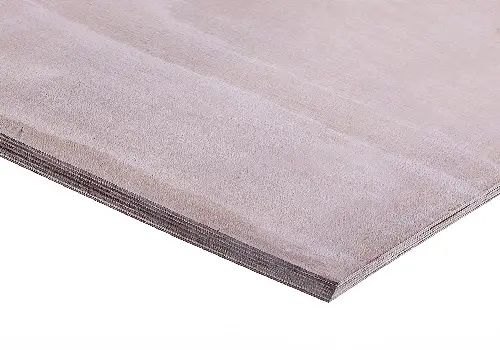
Fire-rated plywood is treated with special chemicals to resist fire and meet fire safety standards.
While it may not be a requirement for garage walls, choosing fire-rated plywood can provide an additional layer of protection and peace of mind, especially for garages attached to living spaces or located in areas with strict fire regulations.
6. Oriented Strand Board (OSB)
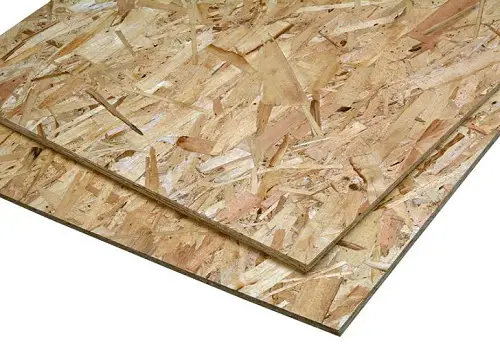
Oriented Strand Board, or OSB, is an alternative to plywood that consists of pressed wood strands and adhesive. It is widely available and relatively affordable.
OSB is more susceptible to moisture damage compared to plywood. It is essential to properly protect and seal OSB if used for garage walls or areas exposed to moisture.
Read Also:
OSB or Plywood for Garage Shelves
Comparing Plywood Types: Best Features, Pros, and Cons
| Plywood Type | Best Features | Pros | Cons |
|---|---|---|---|
| CDX Plywood | Good structural strength | Widely available and affordable | Limited moisture resistance |
| ACX Plywood | Smooth surface, suitable for aesthetics | Resistant to moisture and outdoor exposure | Relatively higher cost compared to CDX plywood |
| T1-11 Plywood | A rustic, textured look | Versatile, can be used for exterior siding and garage walls | Requires proper sealing and protection against moisture |
| Marine-Grade Plywood | Waterproof glue, superior moisture resistance | Excellent durability in wet conditions | Higher cost compared to other plywood types |
| Fire-Rated Plywood | Fire-resistant treatment | Provides additional fire protection | May not be necessary for all garage wall applications |
| Oriented Strand Board (OSB) | Affordable and readily available | Easy to work with and cut | Prone to moisture damage if not properly protected |
Selecting the Best Plywood for Garage Walls
When choosing the best plywood for garage walls, several factors should be considered:
Read Also:
Best Material for Garage Walls
1. Durability and Strength
Garage walls should be able to withstand impacts and support heavy items. Therefore, opt for plywood with good structural strength, such as CDX or ACX plywood.
2. Moisture Resistance
Garages are prone to moisture, especially in humid or coastal areas. Select plywood with adequate moisture resistance, such as marine-grade plywood, to prevent warping, rot, and mold growth.
3. Budget Considerations
Consider your budget when selecting plywood. While marine-grade plywood offers excellent performance, it may be more expensive than other options. Find a balance between quality and cost that suits your requirements.
4. Aesthetics and Finishing Options
If the appearance of your garage walls is important to you, choose plywood with a smooth surface, such as ACX plywood. It provides a cleaner look and can be painted or stained to match your desired aesthetic.
Read Also:
Painting Plywood Walls in Garage
Installation Tips for Garage Wall Plywood
Installing plywood for garage walls requires proper planning and execution. Here are some tips to ensure a successful installation:
- Measure the walls accurately to determine the required plywood dimensions.
- Use appropriate safety equipment, such as gloves and goggles, during the installation process.
- Secure the plywood panels to the studs using suitable fasteners, such as screws or nails.
- Leave a small gap between panels to accommodate expansion and contraction.
- Apply a protective finish or sealant to enhance moisture resistance and durability.
Conclusion
Choosing the right plywood for your garage walls is crucial for long-term performance and durability. Consider factors such as moisture resistance, strength, aesthetics, and budget when making your selection.
By opting for the appropriate type of plywood and following proper installation and maintenance practices, you can create garage walls that are not only functional but also visually appealing.
Laura Linney
As an expert in the field of garage walls, I have extensive knowledge and experience in enhancing the aesthetic appeal and functionality of these spaces through color and decoration. I specialize in creating visually appealing and practical designs that transform garages into inviting and organized environments.
